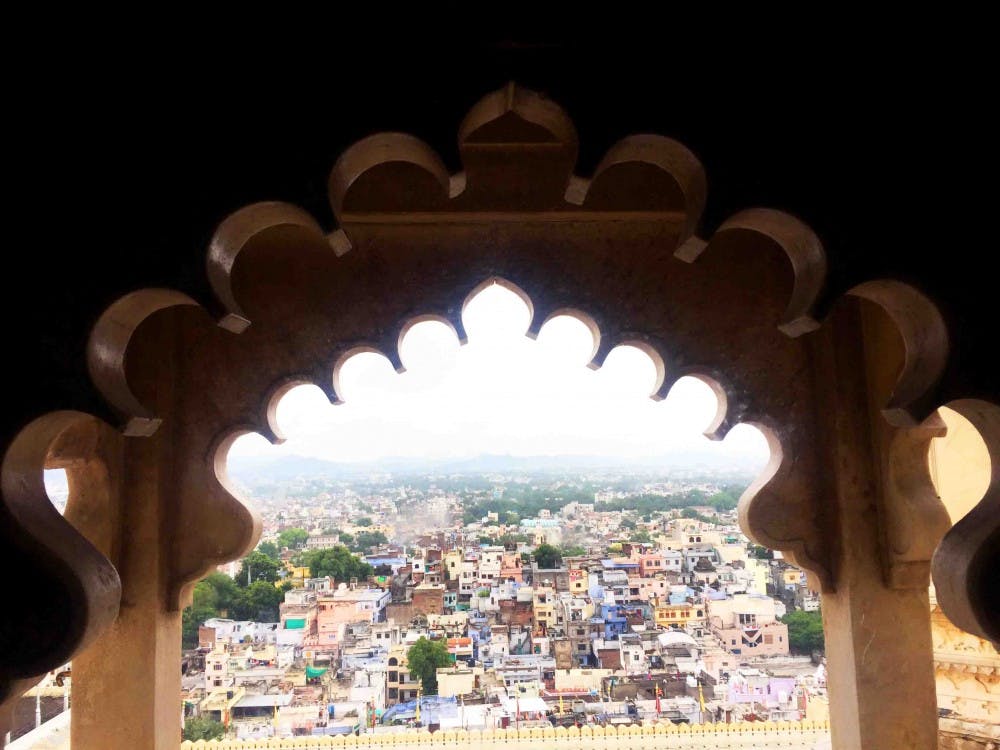DukeEngage Ahmedabad almost didn’t happen. With unexpected visa complications delaying travel to India, by mid-June it looked like the program would end before its first year could even begin. With a stroke of luck at just the right moment, though, the visas were approved and seven DukeEngage students were set to leave the country for India the next day.
Once in the city, students were warmly welcomed by their host families and by the NGO they would be working for: Saath Charitable Trust. Founded in 1989 with the vision of promoting equitable and empowered communities, Saath has touched the lives of half a million individuals through various initiatives. With projects ranging from health and education programs to rural artisan support, Saath works to meet the needs of underprivileged communities throughout the area. A few days into their stay in India, the Duke students selected four different projects to work on and defined their goals for the summer. Three students decided to work on the Child-Friendly Spaces initiative, creating a curriculum for the children of construction workers at various building site classrooms. Two other students helped in Saath’s microfinance offices, creating a dossier and suggesting future finance plans for the organization to implement with clients. The two remaining students developed women’s empowerment projects—one creating a STEM curriculum for teenage girls, and the other writing a Life Skills curriculum for a beautician training program.
Between office work, visiting various sites in the community and participating in DukeEngage activities, every day in Ahmedabad was action-packed and productive. Here’s what a normal Friday looked like during the program:

9:30 a.m.: Students start their day at the Saath office, welcomed by a daily inspirational saying on the office white board.

11:00 a.m.: Dr. Anjana Sandhir—one of the first women in India to write a thesis on female sexuality—teaches DukeEngagers how to count to twenty in Hindi.

12:00 p.m.: Students eat their home-cooked tiffin lunches—generally consisting of rice, roti (bread), dal (lentils) and potatoes or a vegetable dish.

3:00 p.m.: Students return to Saath to do office work. The microfinance pair organizes a dossier of the organization’s economic services.

3:30 p.m.: One of the workers in the office, Santosh, brings chai to everyone at Saath. Students take a five-minute break for “chai time.”

5:00 p.m.: Students leave the office for the drive home—hoping not to hit one of the many street cows on the way.

6:00 p.m.: Host families might bring students to one of Ahmedabad’s many ice cream stands, to get a super-creamy dessert for later that evening.

8:00 p.m.: Host families serve dinner, discussing India’s currency reform and the nation’s new sales tax over vegetarian food.

9:00 p.m.: After dinner, students with a younger host brother play Jenga for hours…while those with an older host brother discuss the differences between India’s and America’s music industries.

11:00 p.m.: Students get to bed early, having to wake up at dawn the next morning for a DukeEngage enrichment trip to the thousand-year-old Modhera Sun Temple.
Get The Chronicle straight to your inbox
Signup for our weekly newsletter. Cancel at any time.

